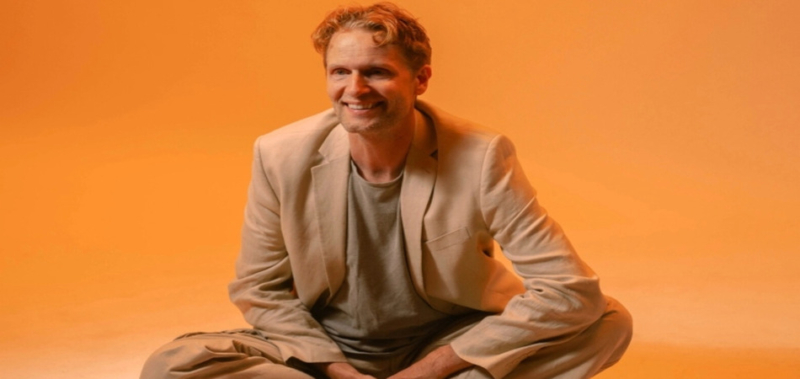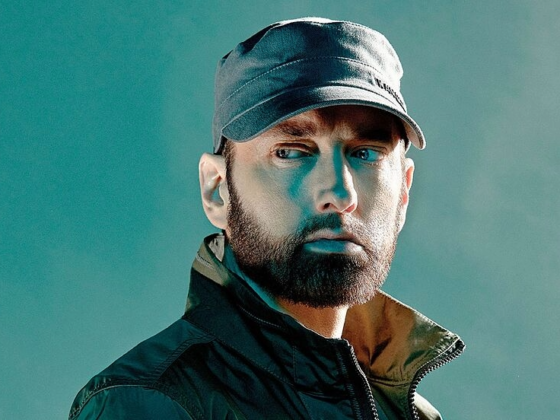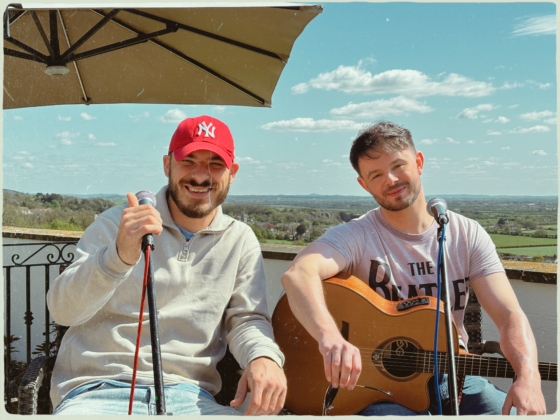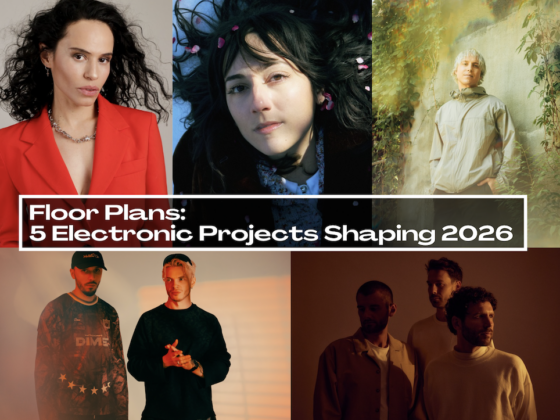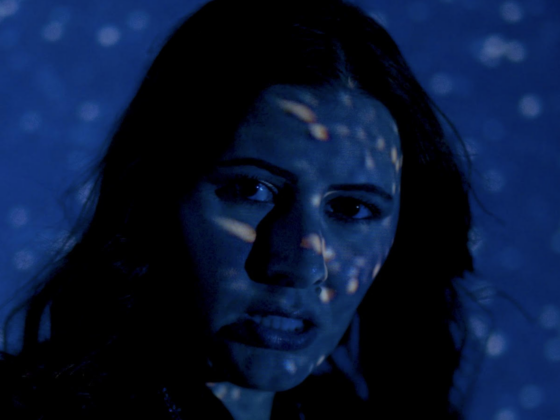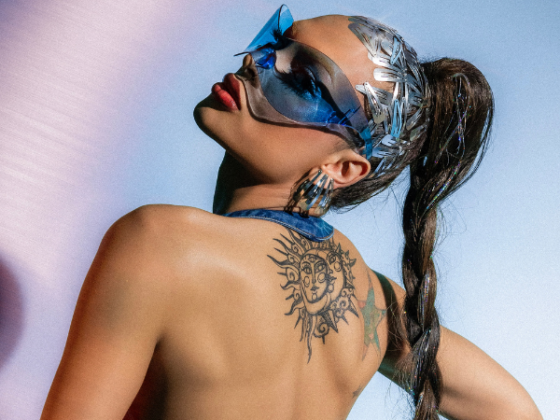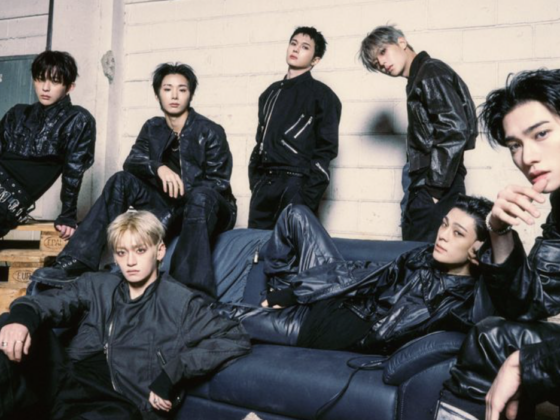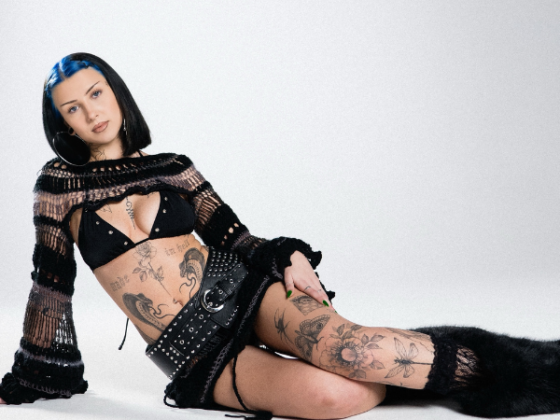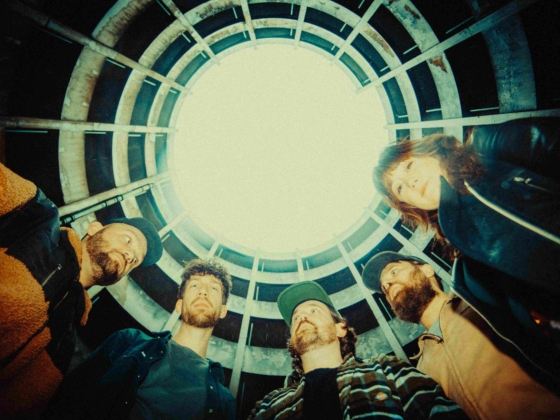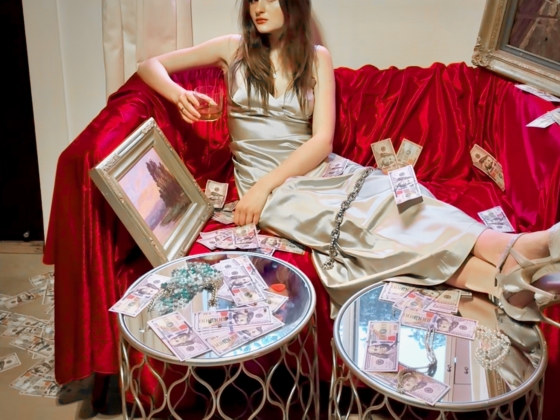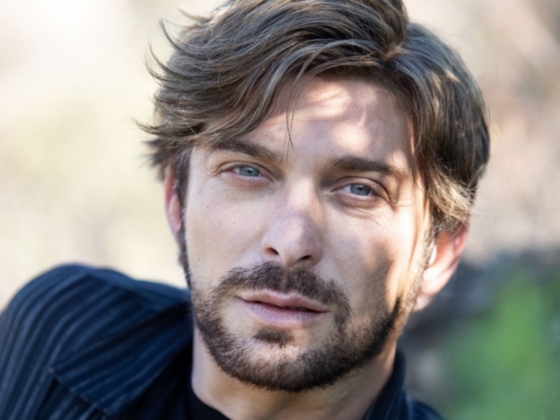When it comes to pop hits, listeners tend to forget the mastermind behind such classics. More often than not, that pop artist is collaborating with a quality songwriter to bring forth a vision. The early 2000s were filled with many pop hits that helped define a generation of up-and-coming artists. Coming off the hills of Black Eye Peas, Fergie breathed new life into her career with "Big Girls Don't Cry." When Beyonce became the legend she is, "If I Were A Boy" was one of her defining tracks. John Legend helped wed many couples with his biggest hit, "All of Me." The common thread between these hits? German songwriter and producer Toby Gad.
Gad has been The Man Behind the Curtain to many pop records, amassing a total of 15 billion streams across all his written records. There are not many songs from the past decades that Gad's creative abilities haven't touched. Over the past few years, Toby Gad has continued to make a name for himself with his record label, Kite Music.
We at EARMILK sat down to talk with the 3x GRAMMY-winning songwriter to discuss the release of his newest project, Piano Diaries – The Hits, a collection of songs Gad has written with legendary pop stars revamped as soul-pop ballads, his thoughts on the future of major record labels and current state of borderless pop music.
Starting from the beginning, growing up in such a rich musical environment must have largely shaped your worldview of music. You were making musical connections even as young as 13. How quickly did you have to adjust during your adolescent years?
So we're kind of torn between my mom's home and my dad's home when we were little, and she always listened to Keith Jared. Keith Jared is someone who you are familiar with? It's probably a record that I've listened to all my life, maybe the one I've listened to the most.
No, I haven't sadly. My taste usually ranges from The Cure and Nirvana.
He shared that when he was 16, I think he played with Miles Davis, and very young age, started doing concerts where he just improvised. And there was this concert in Cologne, I think, 1975 or so, and that was a famous concert. And in those concerts, he would just go on stage and play whatever came to his mind. And I think that was one of the main influences for me, improvisation. And every time you touch an instrument, always do something you have never done before. And I think that's still for me, kind of the guiding principle. When I write songs, I constantly try to explore paths and melodies and words and ideas that feel novel to me, that I haven't done before. That is kind of the excitement of the relentless adventurer to always look for new places that I haven't discovered before.
You and your brother played Rock and Roll compositions. How did feel when you both were playing the intermissions for your parents' band, The Jazz Kids?
Well, we already got the thrill of being on stage early on, and also the audience after, when my parents went back on stage, we played near intermissions, then we went through the audience, collected money for ourselves, and from the first 100 marks I made back then I bought my whole myself, a whole Smurf village, I remember. So it was profitable. In the kid's eyes, it was great making money with music. And then we just kept writing better songs and kept, you know, playing gigs around town, in any local venues where we could play for years.
Growing up so young, already booking gigs, while meanwhile, the rest of us over here playing in sandboxes. You were so wise beyond your years, along with you and your brother and you were already doing summer festivals, bars, and stuff like that, so like, how did it set you up for the later part of your career?
Well, I don't think I was wise beyond my years. I remember when I was 10 years old, we did a radio show, and the radio host, he asked me what I wanted to be when I was growing up. And I said I wanted to be an ice cream salesman so I could just eat ice cream at the time.
Despite such early praise in your young musical career, moving to New York provided even more success. How did transitioning from the German musical scene compare to the more commercialized music landscape in the U.S.?
Yeah, that's that's an interesting comparison. And recently I was a judge on German idol. So after 22 years back in Germany and kind of seeing German music again with eyes from having lived in America for over two decades, I perceive the German market as one that looks up to the American and British markets and tries to kind of emulate some of that, but it doesn't come from the authenticity within because it's not the mother tongue musically. It's amazing, great music there. But as far as the lyrics, lyrical depth. If you sing in your mother tongue, there's a whole different connection to each of the words. Every sentence has a plethora of feelings attached to it if you grew up with these words, and that's lacking if you try to acquire this language later on. On the flip side, me coming to New York and learning the English language. I was going through dictionaries, and it was like looking for gold, like little nuggets of words where I thought, Wow, this word is so incredible. I want to write a song about this. So it had a whole different value to the English language.
The landscape of music that we are in now. The USA and the UK are focused on charts, how much you're making, and how much that translates to in streaming. It's interesting to see how musicians balance those thoughts.
Well, in response to your comment about how much you're making and how much you're streaming, I have a feeling there's a huge change going on as we speak in the music industry. It's profound. I feel the majors are cutting down on their marketing departments and focusing only on established talent and leaving the development of new talent to themselves. Because even if you're assigned to a major record label, the label will ask you, to please post every day on your socials. That's how we promote your record. We'll put it up on Spotify, but you will have to handle the promotion until it goes viral. Once it's viral, we will help you. Kind of thing, which is staggering, because back in the day, you would think, Oh, I signed with a major label. They developed me, and now I'm made and that's 100% gone. Now you sign with a major label and you're one of the hundreds who they wait, okay, once you have a viral moment, then they will start investing in you. It's so strange now.
Billboard now has a chart for TikTok and viral songs outside the traditional methods. What are your thoughts on that?
Yeah, well, it's funny, because 20, at least 20 years of my career, I was only focused on the big players, like whoever can get into the Billboard charts and on the radio and who was assigned to a major label, all that mattered. And a year ago, I suddenly thought, wow, I want to just bring things to life. I want to plant seeds. I want to self-release songs, have them out there, and give them an opportunity for the world to discover them. So we started my label, Kite Records, and in the last 12 months, we've released over 30 songs. Some of them resonate more than others. I think we have like over eight, 9 million streams now, which we've done independently, which I'm proud of. And that's not like the 2 billion-plus that all of me or the big songs get, but hey, we brought things to life. We're giving them a chance to be discovered. And it's a very gratifying journey to just put out whatever I believe in and then see if it resonates right.
Some may say, your first breakthrough came in 2003 with Willa Ford on A Toast to Men. But it only took a few short years in the States to police you in prominent positions in the early 2000 and pop space, working with a young Kiki Palmer and a freshly solo artist, Fergie. In your opinion, what would you say is the moment that you arrived musically like, what's the defining moment that you knew, hey, I made it?
Well, those years when I moved to New York, were the hardest working years of my life. I worked day and night. I shared a tiny, little, dusty space with a jewelry designer on 46th Street, and I got to work from 4 pm until seven in the morning. So I was working all night, every night, and not stopping for maybe a decade, such hard work, and eventually it paid off. One thing led to another. I was working with anyone who wanted to work with me, anyone who wanted to sing. It was brutal. But eventually, that led to me finding my manager, David Sonnenberg. I've worked with him for 12 years now. I'm with AAM, but David Sonnenberg was pivotal at the moment. At that time, he was managing the Black Eyed Peas and the few Gs, and he was the man who helped me get paid for what I was doing. The big break, I would say, was when Big Girls Don't Cry. Six years later, after we wrote, it finally came out and became Song of the Year. It was the most-played song in America that year, and that was finally the word that would identify me with a song they knew that changed everything.
Yeah, I'm glad you brought up that song. Your writing credits. They touch everything from Selena Gomez, and Madonna to John Legend, and Fergie Beyonce. It's crazy how much you influenced like pop music in the early 2000s and like, going around, like after Big Girls Don't Cry. I mean, you kind of had some weight to your name, and how did that affect, like, relationships or going forward, or like, you mentioned, you had a hard time getting clients and stuff like that, and you were willing to work with anybody, and now you have the freedom to do that with. Where do you go from that?
I wanted to work with Beyonce, who had just left Destiny's Child and went to her label, her managers, everyone, and for six months, I was playing them my latest songs. I said I needed to work with Beyonce. And I knew that she was focusing on a pop record, which was great. So I thought, wow, she should work with me. And then six months later, it took a lot of hustling, a lot of kicking indoors, eventually, finally, I got booked for one week in Jay Z's studio, and she showed up on the third day, and I played her if I were a boy, and she was like "Toby, I want to sing this right now," and so I recorded Beyonce, and within an hour or two hours, I had her vocal on it. It was incredible. Back then. She was already an icon and superstar, and it was one of the highlights of my career. And we spent another half hour sitting on the sofa and talking about life, and she's a very genuine, very sweet, very warm person, but that was then also the last time I saw her.
With someone as iconic as Beyonce, you also worked with such a pop and soulful musician as John Legend, how did that go about?
With John Legend, we wrote and still write. Now and then he wants to write and comes to the studio. And that one day he came to the studio and said, "Toby, I'm so in love." I want to write a love song for Chrissy, and I want to marry her. And he said, already, I have already one idea. And he sat on the piano and sang, all of me, love you. And then that's all he had. Then he said, "Toby, I don't know how to continue. What do we do next?" And then I sat at the piano, and I thought of my wife, and thought, maybe love your curves and imperfections and so we were just trading places at the piano, and within an hour and a half or so, we had written the song.
Both those names bring us directly to your new project, The Piano Diaries, a collection of classic pop hits that you have written over the years, but now reimagined as ballads. Why did you decide to release this project now?
Because the landscape has changed so much now, every new artist, whoever wants to make music, has all the means to get an audience with TikTok, Instagram, and distrokid, put your stuff you can self-release now for free. It's unbelievable. I mean, that was unthinkable 1020, years ago. Back then, you must you had to have a deal with the record label, who would then print these plastic pieces that would go into a store and then they would promote it everywhere on television and radio, put half a million into radio promotion, and then hope that people, at the right time, go into the record store buy this piece of plastic. They can't even listen to it. Just based on a cover photo, you would say, okay, for $20 it was ridiculous.
I still do that nowadays, like I look at a cover and say, "Does this seem interesting enough?"
It's crazy how it's changed. Now anyone can just release I love it. And so I thought, why not? Also, we spent half a year in London last year. We just rented out our houses in LA and got something in London, and my daughter went to school there. And London influenced me a lot, because a lot of producers I worked with, they self-released already, and there wasn't a stigma of, oh, you put a song of yours out that you believe in, and no one is going to touch it anymore. No, you bring it to life and you let people listen to it. So what we did this piano here that I love very much, we wrote all of me in this piano, yeah, person dolphin, and it's. Beautiful piano, and we spend a lot of time making the touch soft, so you can play it soft. And like it has an incredible dynamic. So many other pianos I've played, you touch them just a little bit and you don't get a tone. And this one, you can caress it basically, so you have the super warm tone. And that's the foundation for Piano Diaries. So September 20th we're releasing Bad Valentine, which is an original song that I love very much with Angelina Jordan. Angelina Jordan is an incredible singer. She's 18 years old. Her tone gets compared to Amy Winehouse's, and she's what a presence on stage, like one of these singers. You see them on stage, they're unreal, and it's a real honor. And I asked Universal Republic, her label if they would let me release on my label songs I like with their artists for my project. They were all for it.
So, speaking of Angelina Jordan, I've listened to Bad Valentine, and it reminds me so much of that early 2000 pop like Winehouse. Was that on purpose, or was that just something that is just a happy coincidence?
I think Angelina just listened a lot to Amy Winehouse and Etta James and all the greats from the past. So I think it's in the tone of Angelina and in her interpretation.
Looking up the Bad Valentine performance you and Jordan did, you see millions of reactions on YouTube and social media to the LA performance. Even Heidi Klum demanded for its early release. How will that upcoming song fit into the current landscape of pop music?
The story of my life with music is that I never look at the landscape, never look at the trends. Because if something is a trend right now, then next year it won't be. And it's about setting trends, and it's about being the next like when we brought out all of me or because don't cry, there was a time when nobody would release ballads as singles, yes, and labels were like, it's not fast enough. We're not going to release it. And I seem to have always defied that, like with Skyscraper and Demi Lovato. The first single was Skyscraper a ballad, and that also some cry, which happened to be the fifth or the fourth single of Fergie's album, so that one had to wait. There had to be three fast songs before the slow song would finally come.
You mentioned how these songs are sung by iconic singers, but you decided to do something different. You revisit those songs with more established acts like Keke Palmer or Aloe Black. You also merge them with Celine Sharma and Angelina Jordan for more upcoming acts. So how did you balance those two worlds perfectly?
I just felt passing on the torch is cool. Some of these young artists say, okay, when I was 234, year years old, I heard these songs on the radio, and made me feel like this is part of growing up, and it has a whole different meaning to them. It was also funny. When I was a judge on German Idol two years ago, a lot of the contestants would sing my songs, and then they wanted me to tell the stories of those songs. So through all that, I got kind of reconnected with the creation of those songs, and I felt I want to recreate them now, and working with new talents, like Johnny Orlando, for instance, is 21 years old, and what a talent from Canada, or Celine Sharma or, I mean, Angelina Jordan is just, I think she's unbelievable.
We're a little bit to the midway point of the decade, and how do you see the rest of the decade playing out with pop music?
I think the major labels are gonna be less and less relevant, and independence song releasing is going to be more and more prevalent. I have completely stepped away from the big commercial music world this last year, and I've 100% embraced all the independent self-starters, the do-it-yourself artists, and I think it's incredible. There are a lot of independent artists who are very successful being independent, and they do tours, and they do everything else, and do it without major labels. It's independence, but you also have to be very proactive, and you have to kick ass yourself. So if you're that type of go-getter, I think then the world belongs to you, and that's an opportunity that wasn't there before. It's incredible. The other thing with AI, I kind of dipped my toe a little bit. We're using it for a lot of image creation, for lyric videos, for if we need some cover ideas. But as far as music goes with AI, I'm not quite sure.
Who's an artist hot right now that you're looking to work with? Is anybody on your radar?
I think Levee is really good, and she's interacting a lot. I worked with Josh Groban last week, we did three songs, and he is planning to do a duet with her. So I'm excited about maybe, hopefully, being part of that knock on wood.
So last question, following the release of Piano Diaries: The Hits, what's next for Toby Gad to close out this year? And what are you looking forward to next year?
Yeah, it's two things. I'm gonna release with Angelina Jordan, and hopefully more songs too. Super excited about Bad Valentine, and I'm gonna add several songs to the Piano Diaries album a few more songs that meant something to people, like, for instance, Don't Hold Your Breath is a number one hit I had with Nicole Scherzinger. Love that song recording that next week. And then, no matter what is a song that I had with Callum Scott that meant a lot to the gay community about coming out and living for love, was a single I had with Madonna that she performed at the Grammys. And it's one of many songs I wrote with Madonna at the time. So there are a few songs that are dear to my heart.
Connect with Toby Gad here: Instagram

